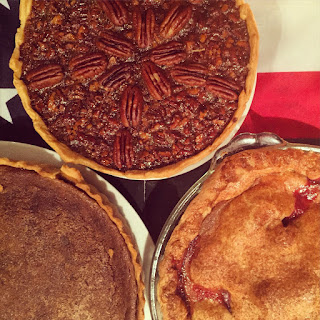There is a school of thought that you are either a soul of the mountains or a soul of the sea.
I still can't work out which category I fall into. When I think of the mountains, I think of feeling lost amidst Milky Way-speckled nights in the Andes, or many, many hikes, soaked to the skin but somehow gloriously refreshed, up various British hills and mountains. But then, I think of times spent by the ocean - perhaps most pertinently the Pacific, once upon a time diving in, as well as more recently gazing upon and swimming in - where you also feel marvellously insignificant. I like that plenty too.
After a week and a half back in the NHS as a junior doctor (for those who want to pin point it - a Core Medical Trainee, or Academic Clinical Fellow if we're being fancy) - I'm once again Dr Karin Purshouse. I'm exhausted and full of some sort of viral plague but amazed at what my little brain has been able to retain despite ten months away from having three bleeping machines attached to me, people hollering 'DOCTOR! Doctor!' and not (at least significantly) eating/drinking/peeing for 14 hours.
And really, I can completely feel the difference a year away from it all has made. I am about ten thousand times more relaxed, and feel calmer, nay, wiser, about the things I do and don't know about clinical medicine. As predicted, I'm every bit the OCD check-a-holic I was pre-USA, but I'll just believe my lovely zany colleague who commented, 'well Karin, that's what makes you a medic'. It's a little like getting into a time machine though - colleagues who were junior to you are now your equal in seniority terms; those who were middle grades like me are now registrars, registrars are now consultants (do I call them by their first names like I always did, or Dr So-and-so?!). Simultaneously, nurses remember you, and you them. The same nurses are the ones you trust to be your eyes and ears across the multiple wards under your lone responsibility at night time; the ones you will always come running for if they say you need to start running. The same ones will hand you the patient's notes with one hand and a cup of tea with the other as you approach the end of your night shift, brain and vocal ability only just about still intact.
I am not the same, it turns out, as those who stayed when I left. For one thing, I'm still smiling - my supervisor marvelled at how happy I looked a week in, despite various administrative disasters making my return a little more complicated. I'm the crazy SHO who high-fives the nurses when we've kept three really sick patients alive together all night, or asks even the hospital canteen staff 'hi there, how are you' (this is VERY American, it turns out), or, shock horror, goes to a yoga class, dinner with new friends or a concert AFTER WORK. Life seems extremely colourful once you decide to approach it America-style.
I still feel like a tourist in my own country, but that's ok - I'm finding plenty of new chums with whom to enjoy the ride, and equally finding moments of peace in the American books I am still working my way through, perching time by/in various waterways or nerding out at science seminars. You can feel pretty insignificant in the NHS, but then, perhaps it's like when you feel insignificant in the mountains or the sea - it's about how you choose to approach and interpret that insignificance, and rather marvel at the greater structure you are part of. Sure, it's a bit of a change going from the mind-boggling world of glioma gene editing to worrying about Mr Bloggs' bowel movements, but you know what? That's important too. And the great thing about being a clinician scientist is that each side of that professional coin informs the other, and helps you keep your perspective on the coin as a whole.
I've stolen this from
Freckle Volume 1, and I think it's pretty bloody wonderful.
 |
| West Coasting - where ocean and mountains meet! |
'Society, as we have constituted it, will have no place for me, has none to offer, but Nature, whose sweet rains fall on unjust and just alike, will have clefts in the rocks where I may hide, and secret valleys in whose silence I may weep undisturbed. She will hang the night with stars so that I may walk abroad in the darkness without stumbling and send the wind over my footprints so that none may track me to my hurt - she will cleanse me in great waters, and with bitter herbs make me whole' - Oscar Wilde, De Profundis
Disclaimer: Mr Bloggs is obviously not a real patient name.



















